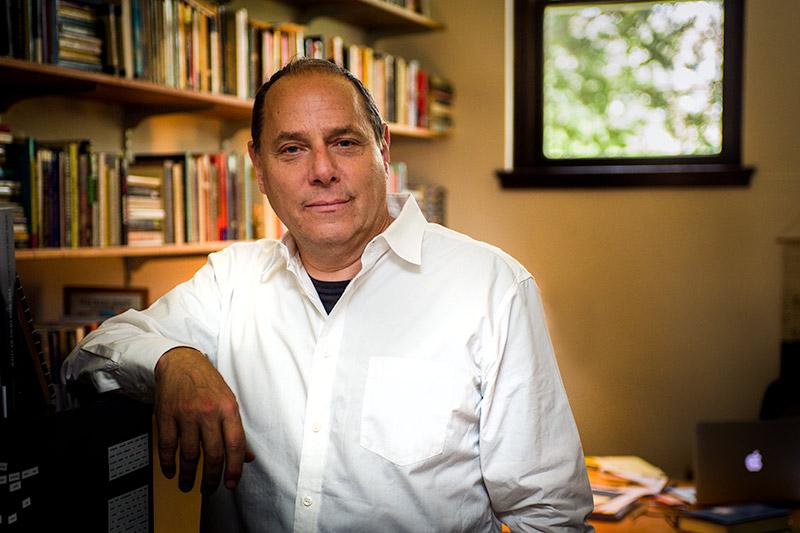Inventor of noir, gangster and heist films is subject of English professor’s latest research
In his book The Origins of Cool in Postwar America, which was released in May, Tulane professor of English Joel Dinerstein dedicates two chapters to the influence of film noir on the cultural concept of what it means to be cool. In 2005, Dinerstein sifted through the Warner Bros. archive in Los Angeles to research the emergence of the film noir genre for the book. Through his digging, he found that novelist W. R. Burnett was behind many of the films he was analyzing.
“He’s a cult figure and a screenwriter who co-invented the gangster film, but there’s very little information on him, which is fascinating to me,” Dinerstein said.
Fueled by his fascination for Burnett’s career, Dinerstein wrote “American Cool: W. R. Burnett and the Rise of Literary Noir,” an article featured in the summer 2017 Virginia Quarterly Review, a national literature journal.
“What struck me during my research was how conscious Burnett was of his criminal characters operating as surrogates for his point of view.”
— Joel Dinerstein, professor of English at Tulane University
Starting with the novel Little Caesar, which inspired what Dinerstein calls the first American gangster film in 1931, Burnett delivered social critique through his outlaw characters.
“What struck me during my research was how conscious Burnett was of his criminal characters operating as surrogates for his point of view,” said Dinerstein.
After co-writing the screenplay for Scarface in 1932, Burnett also played a role in creating the film noir genre. Director John Huston adapted Burnett’s novel High Sierra into a film that certified Humphrey Bogart’s Hollywood persona as what Dinerstein calls “the ethical rebel loner.”
“Burnett’s films always have an ethical rebel loner figure. His outlaws are always the characters that you sympathize with, because they’re frustrated by the same things that we are frustrated by in society,” he said.
Dinerstein also noted that Burnett invented the first heist film, 1950’s The Asphalt Jungle. With Huston directing the film, Burnett contributed dialogue and continuity to the screenplay, which was inspired by his novel.
“Here’s a guy that had a hand in inventing three genres that are still important to us in film and television today. How is a guy this important this relatively unknown? As a cultural historian, I’m attracted to these kinds of mysteries,” Dinerstein said.
Reflections of Burnett’s career can be seen today on the small screen though tortured suburban outlaws — flawed characters like Walter White and Tony Soprano — prevalent throughout the Third Golden Age of Television.
Dinerstein will give a reading from The Origins of Cool in Postwar America at the Garden District Bookshop on Thursday, Nov. 9, at 6 p.m.
Like this article? Keep reading: 'American Cool' on display in Smithsonian exhibit

